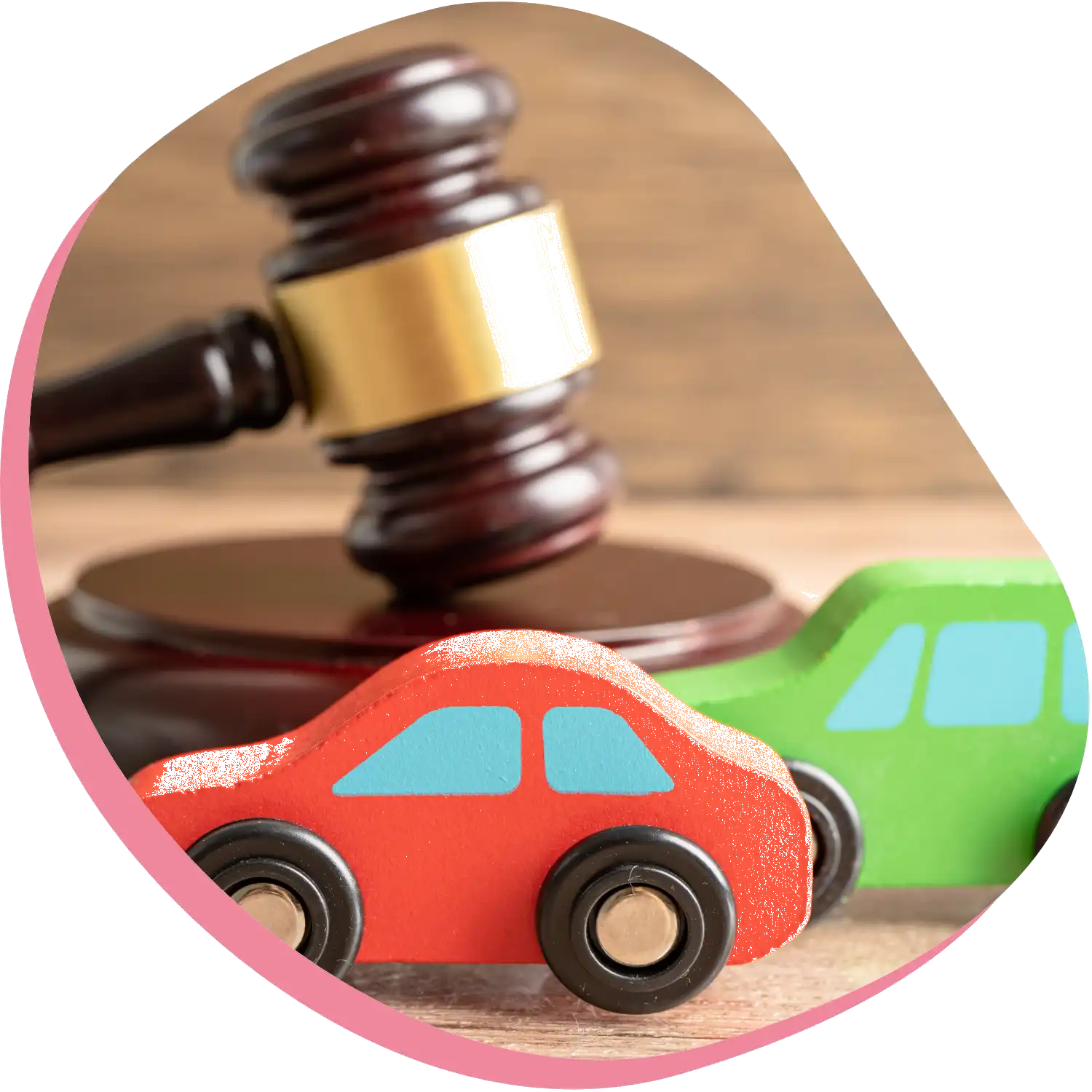Who do you Sue in a Car Accident Lawsuit
Learn more about who a plaintiff can sue after a car accident. While most claims are simply against the person who hit you or your own insurance company, plaintiffs are often able bring claims against other parties.




Who Do You Sue in a Car Accident Lawsuit?
If you have been injured in a car accident, you may be entitled to receive compensation for the medical expenses, lost earnings, and other losses you incur. An essential step in a car accident lawsuit is determining the identity of the at-fault parties.
The truck driver that rear-ended your car may be the obvious person to sue for damages, but the driver may not be the only at-fault party. Suppose the driver does not have enough insurance coverage to pay the compensation you deserve. Your personal injury attorney may discover evidence of a brake failure caused by poor maintenance, which could make the owner of the vehicle and its insurance coverage available to pay the claim.
Who to sue in a car accident lawsuit depends on factors that include the personal injury laws in your state. Getting the best result that adequately compensates you for the injuries you suffered takes time for your car accident attorney to achieve.
In this article we’ll take a look at potential at-fault parties in an auto accident lawsuit and the circumstances of an accident that could make other parties liable for the payment of car accident damages.
Apply NowKey Takeaways
- The circumstances of a car accident must be investigated to determine the at-fault parties that caused it.
- The ability to sue multiple people or companies increases the insurance coverage available to pay personal injury and property damage insurance claims arising from a car accident.
- It’s crucial to the success of a car accident lawsuit to make a claim against all at-fault parties, including some that may not be as obvious as the driver of another car.
Get up to $500,000 With Rates as Low as 2.5% Simple, Monthly
Suing the Driver
All states have laws requiring that motorists maintain control of their vehicles, keep a lookout for pedestrians and other vehicles using the roads, and obey all traffic laws. Drivers who fail to act responsibly and take proper precautions for the safe operation of their motor vehicle may be made to pay compensation to anyone injured due to a crash.
Common behaviors that could lead to a driver being held responsible for causing a car accident include the following:
- Speeding and reckless driving.
- Aggressive driving, including abruptly changing lanes or tailgating.
- Distracted driving, including texting or talking on a phone, adjusting navigation or entertainment systems, talking to passengers, and eating or drinking while driving.
- Driving while impaired by drugs, alcohol, or a combination of both.
- Driving while drowsy or sleepy.
A common misconception is that car accident claims and lawsuits are against the insurance company for the at-fault driver. It’s not.
The claim and lawsuit are against the driver of the vehicle that caused the car crash. The driver’s insurance company agrees to pay the cost of an attorney to defend their insured and pay claims for property damage and personal injury claims up to the limits of the insurance policy.
If your claim exceeds the insurance policy coverage limits or the driver is uninsured and does not have auto insurance coverage, you must look at the assets of the at-fault driver. This is why it’s vital in car accident cases to identify and sue all parties who may be at fault.
Multiple at-fault parties mean additional insurance coverage is available to pay your claim. Your car accident lawyer may need time to negotiate with insurance adjusters for all of the companies. If you need financial help to get by while waiting for payment of a settlement, a lawsuit loan may be the answer.
Suing the Vehicle Owner
A vehicle owner may be held responsible through a personal injury claim for a car accident caused by the negligent or reckless conduct of the person driving it. Unless the vehicle owner was driving at the time of a car accident, the evidence must prove the owner was negligent for entrusting the vehicle to the driver.
To build a car accident case against the owner of a vehicle, your personal injury attorney must gather and present evidence the owner gave consent for the use of the vehicle by the at-fault driver. For example, an owner will not be held responsible for an accident caused by someone who stole a car and used it without permission.
If the evidence proves that an at-fault driver used a car with permission of its owner, the personal injury lawyer for an injured person must prove the owner knew or should have known that the driver was unfit to operate it. For instance, giving the keys to a car to someone intoxicated or letting an inexperienced driver use a vehicle they are not qualified to operate could be negligence making the vehicle’s owner at fault when an accident occurs.
Owners of commercial vehicles involved in car accidents may be sued when they bear some degree of responsibility for causing a crash. For instance, an owner that does not maintain brakes, steering, and other truck systems is liable for accidents caused by mechanical failures.
Get Started
Apply today and get funds in as little as 24 hours!
Suing the Driver’s Employer
Employers may be held responsible for the negligent conduct of their employees through vicarious liability. Simply stated, vicarious liability holds an employer responsible for injuries caused by employees while engaging in work-related activities.
For instance, a truck driver distracted by texting while making deliveries would be at fault for ramming into the back of your car. Vicarious liability also makes the employee an at-fault party as long as the driver was acting within the scope of his employment.
Adding the employer as an at-fault party increases the insurance coverage available for an experienced attorney to reach a fair settlement in personal injury cases. This is particularly true in serious injury cases, such as those involving permanent scarring and disfigurement, where the coverage limits of the driver’s insurance company would result in an inadequate settlement offer.
Suing the Car Manufacturer
According to data collected by the National Highway Traffic Safety Administration, driver error accounts for 94% of car accidents. However, about 2% of the accidents involved the failure of a component of one or more of the vehicles involved in them.
When evidence in a car crash points to a component failure caused by a manufacturing or design defect, a personal injury lawyer may sue the car manufacturer in a product liability claim to recover damages for personal injuries you sustained in an auto accident. Depending on the circumstances of the crash, another motorist also may be at fault and can be named in a car accident lawsuit along with the manufacturer.
Get $500 – $500,000 in as Little as a Single Business Day!
We understand that if you’re applying for funding with us, you needed the funding yesterday. With your attorney’s cooperation, we can provide funding as soon as the same business day.
Suing Government Entities and Contractors
How a road is designed, built, and maintained can be a primary or contributing cause of a motor vehicle accident. Before a personal injury lawsuit can be filed against a government entity, you must file a notice of the claim with the state or local agency. The time to do this is limited, so immediately schedule a free consultation with an experienced personal injury lawyer to protect yourself from losing the right to recover compensation.
How much you can recover in a car accident settlement in a case brought against a government body depends on the laws in your state, so speak to a car accident law firm for legal advice about car accident claims against government entities in your state.
For instance, Texas law imposes a $250,000 cap on car accident judgments or settlements against the state. The cap is $100,000 when accident victims sue local governments in Texas and reach a car accident settlement or win a verdict at trial.